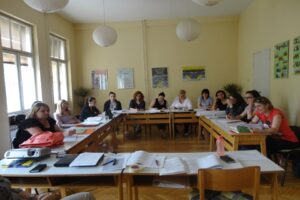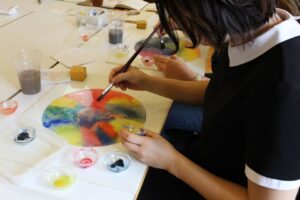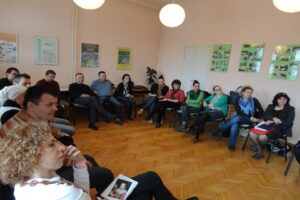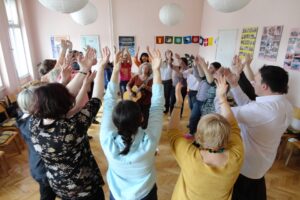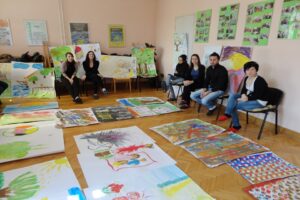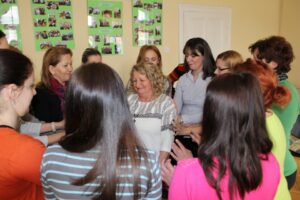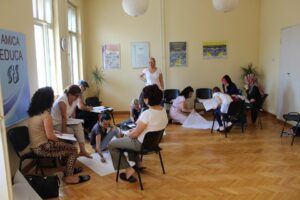Positive Discipline is an educational approach designed to teach children and young people how to be responsible and resourceful members of society and the community. This approach is based on the principles of child development and children’s rights, and is a combination of research and theories on healthy child development and effective parenting. The authors of the Positive Discipline program are Dr. Jane Nelsen and Dr. Lyn Lott (www.positivediscipline.org). Positive Discipline in Raising Children is an approach that is non-violent, respectful and encouraging of everyone involved, both children and educators. This educational approach teaches educators how to answer the everyday educational challenges while supporting the children in forming important life skills.
During the workshops, participants are introduced to the basic concept of Positive Discipline, how to apply and act in accordance with it. Basic concepts include: Determine the long-term goals in education, provide warmth, establish order and structure. understand child development and how children think and feel, facilitate decision making, problem solving to find constructive approaches to conflict resolution. This aprroach is based on five criteria for effective positive discipline:
- Helps children create a sense of connection, fulfills the child’s need for feelings of belonging and importance;
- Encourages mutual respect and encouragement, teaching parents and educators to be gentle and firm at the same time;
- Develops a long-term effectiveness, and takes into account what a child thinks, feels, learns and decides about themselves and the world around him/her;
- Teaches important life and social skills such as respect, concern for others, problem solving, collaboration and skills that contribute to the family, school and community;
- Encourages children to learn about their own capabilities. Encourages the constructive use of personal power and autonomy.








